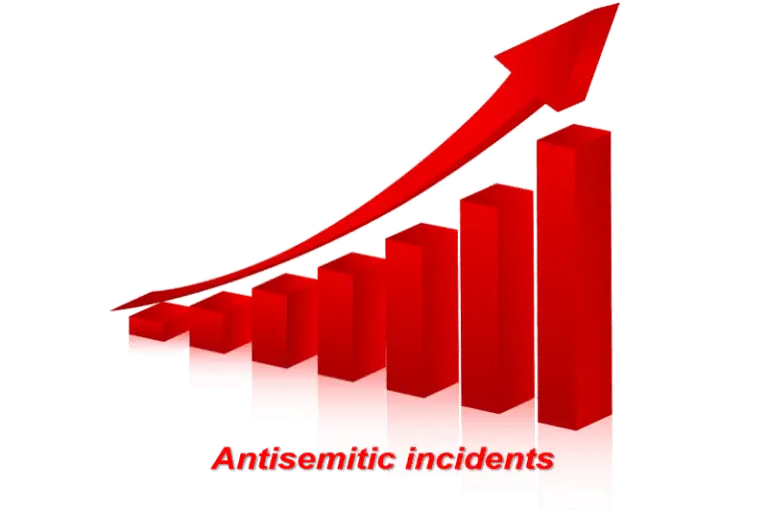A recent controversy consuming the sports world of late, stoked by social media posts from Philadelphia Eagles wide receiver DeSean Jackson,anti reveals less about a new undercurrent of Black antisemitism in sports than about the enduring allure of antisemitic tropes for the marginalized and uninformed.
The transformation of Jews from racial others to sometimes racial insiders can only be understood as part of a larger historical process. Between 1870 and 1920, some 2 million Eastern European Jews immigrated to the United States just as the color line was solidifying. Jews had fled the pogroms and persecution of Eastern Europe to remake themselves in America. At the same time, more than 1 million Black folks were fleeing the inequities and mob violence of the South in the hopes of bettering their lives in the industrial North and Midwest.
Yet Jews who had been viewed as racially distinct in Europe were soon able to reframe themselves as hyphenated ethnics (Jewish Americans) and claim membership as white people within an emerging Black and white binary that determined all civic, social, political, educational, residential, labor and cultural boundaries and opportunities.
This ability of Jews to cross the color line and wield economic and political power like other white folks have long stoked resentment from Black people. James Baldwin articulated the offense in his 1967 essay, Negroes Are Antisemitic Because They’re Anti-White:
In the American context, the most ironical thing about Negro antisemitism is that the Negro is really condemning the Jew for having become an American white man – for having become, in effect, a Christian. The Jew profits from his status in America, and he must expect Negroes to distrust him for it. The Jew does not realize that the credential he offers, the fact that he has been despised and slaughtered, does not increase the Negro’s understanding. It increases the Negro’s rage.
Tensions between Black people and Jews over the decades might be explained through a particular set of economic relationships: as tenants of Jewish landlords, domestics in Jewish households, employees in Jewish businesses and customers in Jewish stores. This dynamic can be seen as early as the 1930s, when Harlemites picketed outside the Jewish-owned Blumstein’s Department Store to protest discriminatory hiring practices, although the “Don’t Shop Where You Can’t Work” boycott was part of a larger initiative that targeted white-owned businesses. And it can shed light on other flashpoints of racial conflict, such as the 1968 New York City teachers’ strike, which pitted the heavily Jewish teachers union against Black (and Puerto Rican) parents over control of the public schools.
Black and Jewish relations have been both idealized and belittled. Some have pointed nostalgically back to the civil rights struggles of the 1950s and 1960s, when Jews made up an outsize proportion of white people involved in registering Black voters, joining bus boycotts and lunch counter sit-ins. By one account, Jews made up at least half of all youths who participated in the Freedom Summer in 1964, although Jews comprised less than 3% of the overall U.S. population. In this idealized narrative, the iconic photo of rabbi Abraham Joshua Heschel and Martin Luther King Jr. marching arm in arm from Selma to Montgomery, Alabama, in 1965, captures a sacred alliance between Black people and Jews.
More cynical observers allege that rising “Black antisemitism” has fractured the relationship, a refrain that has held traction since the 1940s. But in a 1967 letter to the American Jewish Committee, King explained what he believed to be a “limited degree of Negro antisemitism,” a phenomenon he saw as a product of the Northern slum.
The urban Negro has a special and unique relationship to Jews. On the one hand, he is associated with Jews as some of his most committed and generous partners in the civil rights struggle. On the other hand, he meets them daily as some of his most direct exploiters as slum landlords and gouging shopkeepers.
By the late 1960s, Jewish support for the Negro cause for equality was also coming under scrutiny as Black radicals accused Jews of paternalism and acting with self-interest. By the 1990s, tensions erupted into a very public debate over the role of Jewish merchants in the transatlantic slave trade. Minister Louis Farrakhan of the Nation of Islam basked in the media spotlight by scapegoating Jews and vilifying Judaism. The first volume of The Secret Relationship between Blacks and Jews, released in 1991, and written anonymously by the “Historical Research Department” of the Nation of Islam, claims that Jews played a dominant role in the transatlantic slave trade.
A similar viewpoint was repeated by several controversial scholars, such as Leonard Jeffries, the chairman of Black studies at the City College of New York. A darling among some Afrocentric scholars, Jeffries rose to national attention in 1991 with his controversial speech at the Empire State Black Arts and Cultural Festival in Albany, New York. Among the many far-fetched theories he shared that day, including a dichotomy between ice people (white folks) and sun people (Black folks), Jeffries claimed that rich Jews had financed the slave trade and that they, along with the Italian mafia, controlled the movie industry, “using it to paint a brutal stereotype of Blacks.”
In 1993, Nation of Islam spokesman Khalid Abdul Muhammad delivered a caustic speech to Black students at Kean College in New Jersey, accusing Jews of not only controlling the transatlantic slave trade, but also being its main “beneficiaries.” He also claimed that Jewish support for the struggle for civil rights could only be driven by Jewish self-interest, and that Jews controlled much of American society, including the media, the Federal Reserve, the presidency and Black political leaders. Concern mounted from the Anti-Defamation League (ADL) and other groups over whether college campuses were now becoming hotbeds of Black antisemitism.
A year before the controversy, Henry Louis Gates Jr. had written an op-ed in the New York Times titled Black Demagogues and Pseudo-Scholars, in which he condemned what he termed rising Black antisemitism. However, according to a 2016 ADL survey, “antisemitic propensities within the African American population continue to be higher than the general population, but are in decline.” The ADL report noted education and age as the two strongest predictors of antisemitism, and that Americans under 39 and those with a college education were in the freest of prejudicial attitudes. At the same time, pernicious stereotypes that Jews are disloyal to America, killed Christ and dominate business and financial markets remain prevalent. Another study by the ADL Center for Technology and Society identified at least 4.2 million antisemitic tweets shared or reshared on Twitter between January 2017 and January 2018.
Unknowingly or not, Jackson and the other Black athletes and celebrities have tapped into this fractured storyline of “Black” antisemitism that continues to cloud Black and Jewish relations. Ironically, their posts echo refrains from white nationalists across the globe, who have long engaged in conspiracy theories about the Jewish race, the Jewish banks and Jews’ control of the media. These theories have been rekindled in the current political environment, where white supremacists march openly. Indeed, violence against Jews has risen since 2014.
Not surprisingly, so too has violence against Black people, since antisemitism and racism tend to move in tandem. According to the 2018 FBI crime statistics, among the 7,120 “hate” incidents reported that year, 1,943 incidents were attributed to anti-Black bias, and an additional 835 incidents involved anti-Jewish bias.
Historically, the nature of hate crimes varies by group: Hate crimes against Black people generally involve personal assaults, while hate crimes against Jews overwhelmingly involve attacks on property. However, these lines have begun to blur over the past several years. Both the 2015 mass shooting at Emanuel African Methodist Episcopal Church in South Carolina, and the 2018 attack on the Tree of Life, Or L’Simcha Congregation in Pittsburgh, were both motivated by racist beliefs. So too was the more recent murder of Jews at a kosher market in Jersey City, New Jersey, by an antisemite.
Not only do Black people sacrifice their moral credibility by indulging in antisemitism, but we lend legitimacy to those very groups that seek to disempower us as well. Like it or not, our fates are entangled.
Bruce D. Haynes was born in Harlem, New York. After receiving his B.A. in Sociology from Manhattanville College, he conducted applied research, under sociologist and jury expert Jay Schulman, selecting juries for trials throughout New York state. From there, he went on to earn his doctorate in sociology from the City University of New York (1995) and was appointed Assistant Professor of Sociology and African-American Studies at Yale University in 1995. In 2001, he joined the faculty at the University of California, Davis, where he now serves as Professor of Sociology. In addition, he is a Senior Fellow in the Urban Ethnography Project at Yale University.






